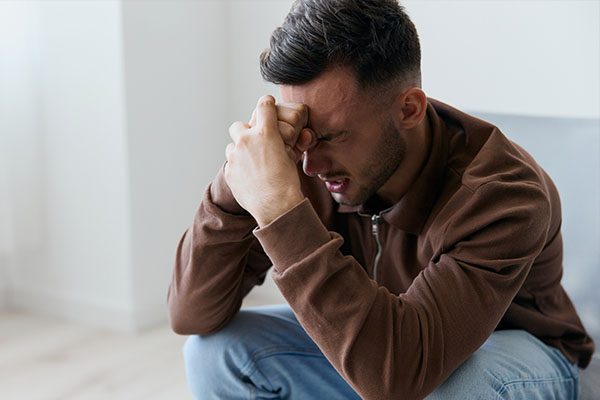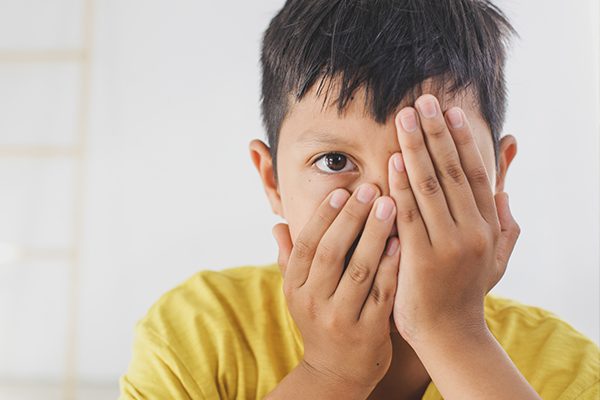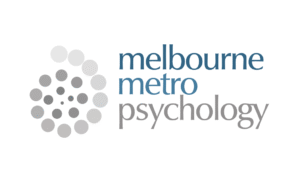- 412 Mt Alexander Rd Ascot Vale Vic 3032
- 0450 446 788
- If You Are Suicidal Or In A Crisis Please Call 000 Or Lifeline On 13 11 14
TREATMENT
TREATMENT
common disorders We treat
Sometimes life just gets too difficult but it doesn’t have to be this way. Do you or someone you know struggle with any of the following: Unable to cope with work? Problems with sleeping? Withdrawn from family or friends? Relationships problems or lonely? Having a hard time? Sad or unhappy? Overwhelmed by intense physical sensations? Can’t stop worrying?
It doesn’t have to be this way. Help is available.
Some of the more common disorders treated at Melbourne Metro Psychology are anxiety, alcohol and drug issues, and depression.
Anxiety

Anxiety disorders affect the way people think, feel and behave and if not treated can cause considerable distress and disruption to you life.
Anxiety symptoms are real. They are not just in your head. They can be treated, and they are nothing to be ashamed of.
Some common symptoms of Anxiety: rapid heart beat or palpitations; shortness of breath; trembling; sweating; hot and cold flushes; pins and needles; fear and/or worry; thoughts that don’t go away; avoidance of people, places or things.
Addiction

Drinking or using drugs too much can cause problems but how much is too much and how do you know if you have a problem? Problem drinking or drug using is not just a matter of how much but also why you drink/use drugs and how much it affects you life.
Do some of these apply to you? Keep in mind that almost no one has them all: “My drinking (drug use) sometimes causes problems”. “I sometimes behave very differently when intoxicated (high) than when sober (clean), almost as if I’m a different person” . “I have a very high tolerance – that is, I can drink (use) a lot without acting or feeling highly intoxicated (high)”.
Depression

When a person has depression it interferes with daily life, normal functioning, and causes pain for both the person with the disorder and those who care about him/her.
Depression is more than just feeling upset or sad. It is not a character flaw or a sign of personal weakness. Just like you can’t “wish away” diabetes 0r heart disease, you can’t make depression go away by trying to “snap out of it”.
Symptoms of depression can include: persistent sad, down, miserable or “empty” feeling; loss of interest in activities or hobbies once pleasurable; reduced self-esteem and self-confidence; feelings of guilt and worthlessness; bleak and pessimistic view of the future; ideas or acts of self-harm or suicide; insomnia, early morning wakefulness or excessive sleeping; disturbed appetite and increase or decrease in weight; decreased libido; reduced energy leading to fatigue and diminished activity; reduced concentration and memory.
ASD/ADHD

Lorem ipsum dolor sit amet, consectetur adipiscing elit, sed do eiusmod tempor incididunt ut labore et dolore magna aliqua. Vulputate dignissim suspendisse in est ante. Faucibus turpis in eu mi bibendum neque. Sodales ut etiam sit amet nisl purus. Velit laoreet id donec ultrices tincidunt.
Lorem ipsum dolor sit amet, consectetur adipiscing elit, sed do eiusmod tempor incididunt ut labore et dolore magna aliqua. Vulputate dignissim suspendisse in est ante. Faucibus turpis in eu mi bibendum neque. Sodales ut etiam sit amet nisl purus. Velit laoreet id donec ultrices tincidunt.
Lorem ipsum dolor sit amet, consectetur adipiscing elit, sed do eiusmod tempor incididunt ut labore et dolore magna aliqua. Vulputate dignissim suspendisse in est ante. Faucibus turpis in eu mi bibendum neque. Sodales ut etiam sit amet nisl purus. Velit laoreet id donec ultrices tincidunt.
LGBTQI+

LGBTQ people enter therapy for the same reasons everyone else such as depression, anxiety, addiction, work stress or relationship issues. Some LGBTQ people arrive in therapy with an extra layer of trauma and shame (Minority Stress) related to their sexual orientation or gender identity and the ways in which that orientation/identity has been responded to by their families and/or society.
Whenever a person feels or desires something outside that cultural norm, life becomes more difficult. Even when people who are different are raised in tolerant homes, surrounded by supportive others, the overarching expectations of society are readily apparent from birth onward.
As such, these individuals know, deep in their hearts and usually rather early in life, that who they are and/or what they want in a partner is regarded by many as abnormal and/or unacceptable. Hence: the extra layers of trauma and shame that many LGBTQ people carry
common disorders We treat
Sometimes life just gets too difficult but it doesn’t have to be this way. Do you or someone you know struggle with any of the following: Unable to cope with work? Problems with sleeping? Withdrawn from family or friends? Relationships problems or lonely? Having a hard time? Sad or unhappy? Overwhelmed by intense physical sensations? Can’t stop worrying?
It doesn’t have to be this way. Help is available.
Some of the more common disorders treated at Melbourne Metro Psychology are anxiety, alcohol and drug issues, and depression.

Anxiety
Anxiety disorders affect the way people think, feel and behave and if not treated can cause considerable distress and disruption to you life.
Anxiety symptoms are real. They are not just in your head. They can be treated, and they are nothing to be ashamed of.
Some common symptoms of Anxiety: rapid heart beat or palpitations; shortness of breath; trembling; sweating; hot and cold flushes; pins and needles; fear and/or worry; thoughts that don’t go away; avoidance of people, places or things.
Addiction
Drinking or using drugs too much can cause problems but how much is too much and how do you know if you have a problem? Problem drinking or drug using is not just a matter of how much but also why you drink/use drugs and how much it affects you life.
Do some of these apply to you? Keep in mind that almost no one has them all: “My drinking (drug use) sometimes causes problems”. “I sometimes behave very differently when intoxicated (high) than when sober (clean), almost as if I’m a different person” . “I have a very high tolerance – that is, I can drink (use) a lot without acting or feeling highly intoxicated (high)”.


Depression
When a person has depression it interferes with daily life, normal functioning, and causes pain for both the person with the disorder and those who care about him/her.
Depression is more than just feeling upset or sad. It is not a character flaw or a sign of personal weakness. Just like you can’t “wish away” diabetes 0r heart disease, you can’t make depression go away by trying to “snap out of it”.
Symptoms of depression can include: persistent sad, down, miserable or “empty” feeling; loss of interest in activities or hobbies once pleasurable; reduced self-esteem and self-confidence; feelings of guilt and worthlessness; bleak and pessimistic view of the future; ideas or acts of self-harm or suicide; insomnia, early morning wakefulness or excessive sleeping; disturbed appetite and increase or decrease in weight; decreased libido; reduced energy leading to fatigue and diminished activity; reduced concentration and memory.
ASD/ADHD
Lorem ipsum dolor sit amet, consectetur adipiscing elit, sed do eiusmod tempor incididunt ut labore et dolore magna aliqua. Vulputate dignissim suspendisse in est ante. Faucibus turpis in eu mi bibendum neque. Sodales ut etiam sit amet nisl purus. Velit laoreet id donec ultrices tincidunt.
Lorem ipsum dolor sit amet, consectetur adipiscing elit, sed do eiusmod tempor incididunt ut labore et dolore magna aliqua. Vulputate dignissim suspendisse in est ante. Faucibus turpis in eu mi bibendum neque. Sodales ut etiam sit amet nisl purus. Velit laoreet id donec ultrices tincidunt.
Lorem ipsum dolor sit amet, consectetur adipiscing elit, sed do eiusmod tempor incididunt ut labore et dolore magna aliqua. Vulputate dignissim suspendisse in est ante. Faucibus turpis in eu mi bibendum neque. Sodales ut etiam sit amet nisl purus. Velit laoreet id donec ultrices tincidunt.

LGBTQI+
LGBTQ people enter therapy for the same reasons everyone else such as depression, anxiety, addiction, work stress or relationship issues. Some LGBTQ people arrive in therapy with an extra layer of trauma and shame (Minority Stress) related to their sexual orientation or gender identity and the ways in which that orientation/identity has been responded to by their families and/or society.
Whenever a person feels or desires something outside that cultural norm, life becomes more difficult. Even when people who are different are raised in tolerant homes, surrounded by supportive others, the overarching expectations of society are readily apparent from birth onward.
As such, these individuals know, deep in their hearts and usually rather early in life, that who they are and/or what they want in a partner is regarded by many as abnormal and/or unacceptable. Hence: the extra layers of trauma and shame that many LGBTQ people carry

Types Of Treatment
We can help you feel better.
INDIVIDUAL SESSIONS
Treatment consists of a psychological therapy known as cognitive and behavioral therapy (CBT). This is a short-term therapy and most people will require between 15 to 20 sessions.
TELEHEALTH
Online psychological treatment is available by request with Dr. Peter Eide. This method of treatment is ideal for people who are not able to attend face-to-face sessions. This can include using FaceTime (both Apple and Windows) or Zoom.
Discover Relief
take the First Step to Feel Better Today! For psychological assessment or treatment with Dr Peter Eide!
Links
CONTACT US
- 412 Mt Alexander Rd Ascot Vale Vic 3032
- 0450 446 788
- If You Are Suicidal Or In A Crisis Please Call 000 Or Lifeline On 13 11 14
PAYMENT
Fees are much lower than the recommended fee set by the Australian Association of Psychologists Inc of $330 for a 50+ minute consultation.
Discover Relief
Take the First Step to Feel Better Today! For psychological assessment or treatment with Dr Peter Eide
Links
CONTACT US
- 412 Mt Alexander Rd Ascot Vale Vic 3032
- 0450 446 788
- If You Are Suicidal Or In A Crisis Please Call 000 Or Lifeline On 13 11 14





